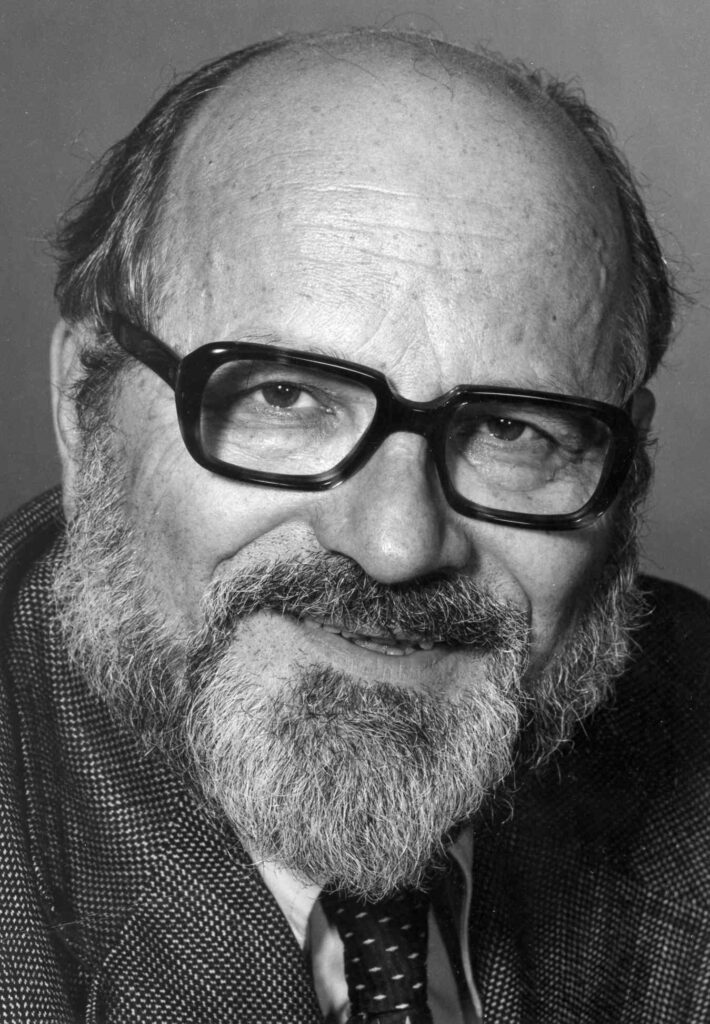
Born in Toronto in 1916, Benjamin Gershon Kayfetz (1916–2002) was a leading figure in the Jewish community through his work as a Canadian-Jewish public servant, journalist, broadcaster, and human rights activist.
Ben Kayfetz graduated from the University of Toronto with a degree in modern languages and the Ontario Teachers College, with a specialization in language teaching. In 1943, he joined the war effort, taking on a position with the Department of National Defense in Postal Censorship. His main responsibility was reviewing incoming and outgoing mail of POWs (prisoners of war). After the war, Kayfetz stayed on with the Canadian military and was sent to British-occupied Germany where he worked as a telecommunications censor for the Control Commission until 1947.
Upon returning to Toronto, Kayfetz was hired by the Canadian Jewish Congress (CJC) where he worked until 1985, spending his entire life in service to the Jewish community. He worked with various churches, unions, and minority groups to develop anti-discrimination laws and for the protection of minority and religious rights. He was instrumental in organizing successful campaigns for the passage of legislation banning discrimination in employment and housing, removing nonsectarian teaching from Ontario public schools, and enacting federal anti-hate legislation and legislation dealing with war crimes. He remained one of the Jewish community’s most outspoken advocates in the struggle against antisemitism, Holocaust denial, and racism. Kayfetz was also actively involved in promoting the welfare of Jewish communities worldwide, making visits to Cuba in 1962 and 1965 and Russia in 1985.
In addition to his professional activities, Kayfetz was a prolific writer and humourist, writing articles for various Jewish publications under both his own name and the pseudonym Gershon B. Newman. He gave weekly radio addresses on CHIN radio and was actively involved in the Toronto Jewish Historical Society, the Canadian Jewish Historical Society, and the Yiddish Luncheon Circle. After his retirement in 1985, he was awarded the Samuel Bronfman Medal by the Canadian Jewish Congress and in 1986 In recognition of his efforts to promote human rights, he was also awarded the Order of Canada.
Ben Kayfetz’s collection is an example of one that perfectly embodies a life lived. Kayfetz’s love of Yiddish and local Jewish history is evidenced through his multiple writings on the subject as well as his correspondence with friends and family. His war work and his professional work bookend his life as a communal professional. These records help narrate the history of the community throughout the second half of the 20th century. But the intensity of his communal work is balanced by the humour and thoughtfulness with which he seemingly approached everything else in life. The fullness and richness of this collection, particularly his writings, is what makes this collection so valuable and provides us so much historic insight.

Ontario Jewish Archives
Blankenstein Family Heritage Centre
UJA Federation of Greater Toronto
Sherman Campus
4600 Bathurst Street
Toronto, Ontario M2R 3V2
416-635-5391
www.ontariojewisharchives.org